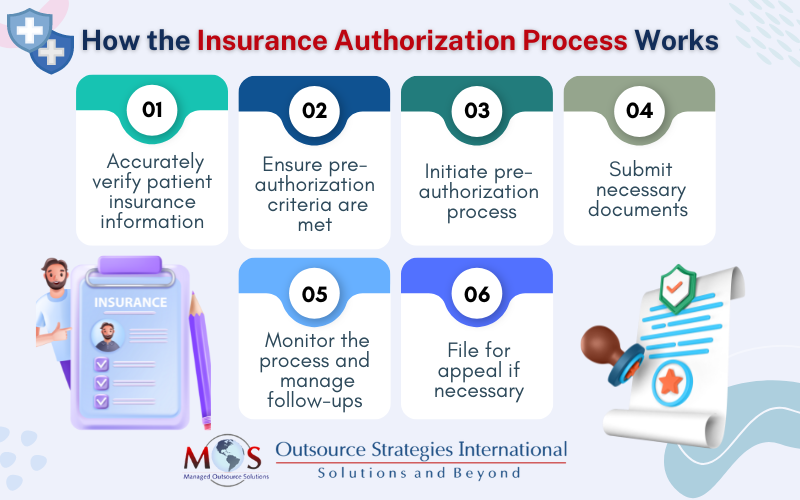Obtaining prior authorization (PA) is a complex, time-consuming, and often frustrating process that inadvertently delays access to timely patient care. Pre-authorization requirements are stringent, and there is always the risk that the request to the insurer to cover the specific service that needs preapproval may be denied. Any procedure or treatment rendered without the approval of the required PA will not be reimbursed by the health plan. This can lead to issues such as delays in patient care, declines in patient satisfaction, and lost revenue.
Reasons for Low Appeal Rate for Prior Authorization Denial
A prior authorization denial is not the end of the process. Your practice has the option of filing for an appeal to overturn the initial decision. Earlier this year, Forbes reported that, on average, 6% of the PA requests are initially denied. Of this proportion, only 11% are appealed. The report notes that 82% of the appeals are ultimately fully or partially reversed. So, if the chances of appeal approval are high, why is the appeal rate so low? There are several reasons for this:
- The patient may not be aware of their right to appeal.
- There is a timeframe within which the appeal must be filed; if the appeal is filed after the last date, the insurer will not consider it.
- Lack of information about the reason for PA denial by the health insurance company.
- The appeal process may be long, confusing, and arduous for both the patient and physician.
To mitigate PA concerns, the Centers for Disease Control and Prevention (CMS) finalized a new rule that will take effect in 2026. When implemented, payers are mandated to increase transparency by providing specific reasons for the denial of PA request. Furthermore, the rule aims to streamline the PA process by setting specific day limitations to make prior authorization decisions known to the healthcare providers and patients. Several states have also enacted laws with the intention to ease the PA process, with nearly 90 PA reform bills being proposed in various state legislatures. Nevertheless, the difficulties of obtaining PA approval for medical professionals and patients continue to persist. By outsourcing these tasks to a medical billing company that is skilled in managing the prior authorization process, you can increase the PA approval rate of your practice.
What to Do When Prior Authorization Request is Denied?
If your request for prior authorization is denied, then you and your patient will be notified about the denial. The first step is to understand the reason behind the denial, so contact the health insurance company to find out the problem. For example, a PA request for a medication might be rejected due to many reasons. The most common reason is the availability of less expensive, alternate medications or medicines that can provide better outcomes. Medical insurers also don’t cover requests that aren’t considered a medical necessity, such as cosmetic treatments.
If a patient believes that their PA was incorrectly denied, they can appeal the rejected claim. They would need to first contact the insurance company and ask why the claim was denied. If the insurance company indicates a billing error or missing information, patients can work with their physician to review the paperwork and fix any errors that caused the denial. They can also ask the physician to provide backup evidence or notes that could help prove that the prescription is medically necessary. The chances of success in resolving a prior authorization denial are higher when the physician ensures that all clinical information is included with the appeal, including any data that may have been missing from the initial request.
Prior authorization continues to have a detrimental effect on physicians and other healthcare workers, as 95% of physicians reported that PA significantly contributed to physician burnout. In addition, over 87% reported that the PA process leads to higher healthcare resource utilization, which burdens practices with administrative hassles. Led by the AMA, physicians, payers, and other stakeholders are working to improve the prior authorization process. The final rule issued by CMS earlier this year is one such step that aims to reduce patient care delays as well as administrative load faced by medical professionals. This new rule will help in promoting greater transparency by making information available to the public about the specific services that require PA from the health plans and information about PA claim denials.
Outsourcing the insurance authorization task is common to ease this burden.
Navigating the Insurance Authorization Process
Insurance authorization companies have experienced personnel who act as enablers between the physician’s practice and the payer. These experts have extensive experience in working with all government and private insurances. They will collect the patient information from the practice to obtain prior authorization for medications and services. Insurance authorization services cover the following:
- Verifying patients’ benefit information before the office visit, which will ensure clean claim submission
- Contacting payers to obtain pre-authorization quickly
- Ensuring that payer criteria are met before submitting the request
- Submitting all necessary documentation with PA requests
- Managing any follow-up, such as getting more information from the physician for the pre-authorization
- Support for appealing denials
Eliminate the burden of pre authorization workload by outsourcing our highly skilled medical billing experts!
Tips for Navigating Prior Authorization Denials
The following strategies can help you effectively manage PA denials and improve approval rates:
- Identify the Reason for the Denial
Before committing to the appeal process, it is essential to know the reason behind the denial. Review the denial letter from the insurer to understand why the request was denied. If the reason for denial is not stated, do not hesitate to contact the insurance company directly and ask for a detailed explanation. The possibilities for the decision behind denial might be due to several reasons, such as:
- Incomplete clinical information about the patient’s health condition
- The treatment was deemed medically unnecessary
- Any errors or discrepancies present in the billing codes
Once you identify the reason, you can take the necessary actions to resolve the issue. If you discover the error was on your side, correct the issue and submit another PA request. However, if your PA request was denied due to lack of medical necessity or deemed the treatment experimental, you have the option to go for an appeal.
- Craft a Compelling Appeal Letter
To file an appeal, you should craft a compelling letter of appeal to the insurer with complete details and proper justification. This letter should be a comprehensive description of the patient’s condition and how the treatment is a critical medical necessity to improve the patient’s health. Present all the medical evidence, such as medical records, lab test results, and other physician’s consultation notes that support the reason for recommending the prescribed treatment. Your letter of appeal should include the following information:
- Previous prior authorization reference number
- Patient’s name and policy number
- The diagnosis of the patient
- The complete medical history applicable to the diagnosis
- The tried and failed previous treatment or service, along with evidence
- Medical codes pertaining to the patient’s condition and treatment
- The reason for the denial received from the insurer
- The medical necessity of the treatment demonstrated clinically to reconsider and reverse the decision of denial
- The healthcare provider’s signature, date, and contact details
It is important to inform the patient about the steps taken and other details so they stay informed about the progress of the appeal.
- Regular Follow Up
After submitting the letter of appeal, it is crucial to maintain a consistent follow-up schedule to monitor its progress. Sometimes, the insurer may request additional information to process your appeal. Most insurance companies have a deadline, usually within 30 days, to assess and process your application and make a final decision. So, it is important to reach out and keep track of your appeal to ensure it is being reviewed in a timely manner. Clear and proper communication with the insurance companies can facilitate better insights into the appeal process and get the best results for your patients.
Leverage Expert Support
Keeping up with each PA request and any subsequent denials is a time-consuming process that can distract from patient care. To reduce the administrative burden, consider delegating the task to a specialized team. Working with experts who are well-versed in dealing with the prior authorization process, including handling denials, you can help patients get the timely care they need.
However, finding and hiring extra staff for the PA process at your office requires additional time and resources. Since insurance verification and authorization are crucial aspects of medical billing, you might consider utilizing outsourced medical billing services. Experts can help you establish a streamlined prior authorization process and implement effective denial management strategies, avoiding interruption to care and cash flow.





